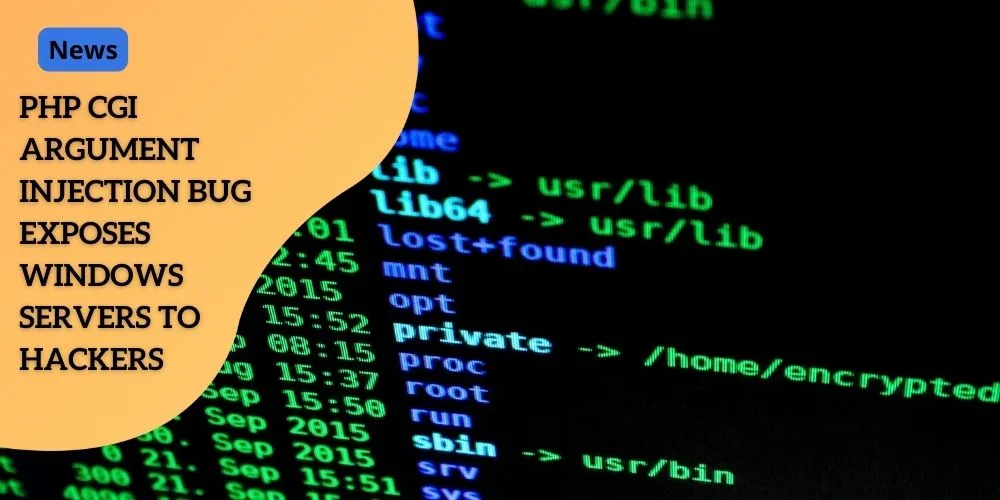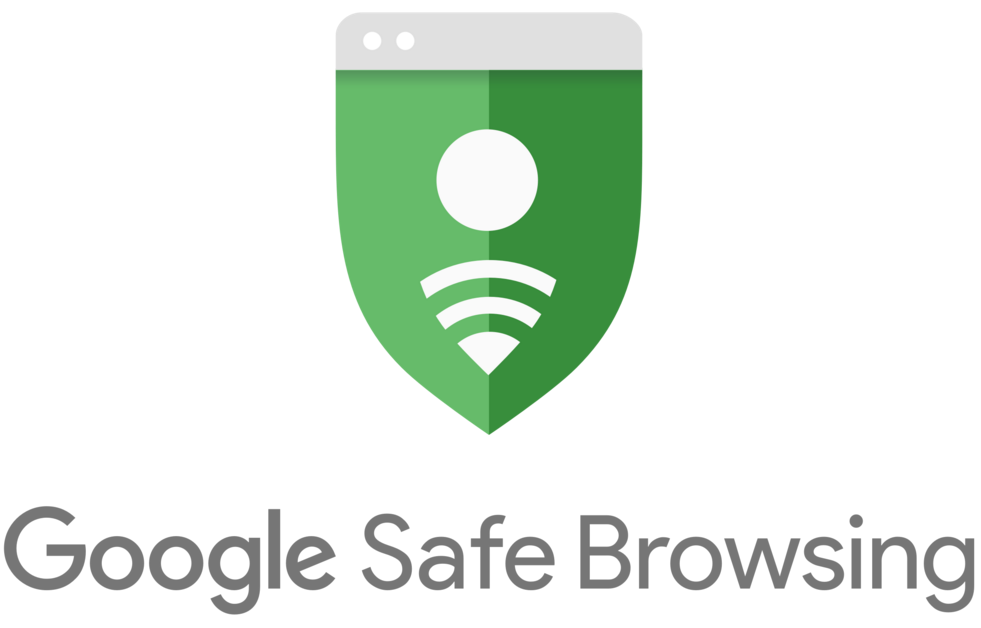PHP CGI Argument Injection Bug Exposes Windows Servers to Hackers

Anúncios
Overview of the Vulnerability
Unveiling CVE-2024-4577
Recent findings have exposed a critical security vulnerability impacting all Windows versions of PHP, identified as CVE-2024-4577.
This vulnerability, known as a CGI argument injection flaw, was discovered by the diligent security researcher Orange Tsai from DEVCORE.
Anúncios
It is particularly insidious because it allows unauthenticated attackers to execute arbitrary code on remote PHP servers through the manipulation of CGI arguments.
To put it simply, a bug in the way PHP handles encoding conversions on Windows paves the way for remote code execution (RCE) attacks.
Anúncios
Cracking the Code: CGI Argument Injection
This vulnerability stems from an oversight during the encoding conversion process within the Windows operating system.
According to the detailed explanation from Orange Tsai, this oversight enables attackers to bypass existing protections that were previously thought to be impenetrable, including those established for CVE-2012-1823.
The result is that by injecting specific character sequences into CGI arguments, attackers can execute arbitrary commands on affected servers.
Discovery and Responsible Disclosure
The danger posed by CVE-2024-4577 was responsibly disclosed to the public on May 7, 2024.
The fix was promptly made available, addressing the vulnerability across all PHP versions on Windows.
The immediate public disclosure underscored the vulnerability’s severity, spurring urgency in applying the necessary patches to vulnerable systems.
In the words of Orange Tsai, “Who would have thought that a patch, which has been reviewed and proven secure for the past 12 years, could be bypassed due to a minor Windows feature?”
Why This Matters
- 🖱️ The flaw exposes all XAMPP installations on Windows by default.
- 🖱️ It’s especially harmful to systems configured for East Asian languages like Traditional Chinese, Simplified Chinese, or Japanese.
- 🖱️ Within just 24 hours of public disclosure, active exploitation attempts were detected, further highlighting the urgency.
Keeping a vigilant approach towards patches and updates is crucial.
A timely response in addressing vulnerabilities such as CVE-2024-4577 can be the difference between a secure system and a disastrous breach.
Impact and Affected Systems
XAMPP Installations on Windows
The newfound vulnerability, CVE-2024-4577, spells trouble for all XAMPP installations running PHP on Windows.
By default, these setups inherit the risk, turning what was supposed to be a development-friendly environment into a ticking time bomb for remote code execution.
This highlights an urgent call to action for users to address this security flaw immediately to avoid potential exploits.
Languages Configured for East Asian Languages
Systems that are configured for East Asian languages, particularly Traditional Chinese, Simplified Chinese, or Japanese, face an even graver threat.
The vulnerability takes advantage of specific character sequences within these locales, making them exceptionally susceptible.
It’s crucial for administrators managing such configurations to prioritize securing their setups without delay.
Immediate Exploitation Attempts
Worryingly, attempts to exploit this vulnerability began cropping up within just 24 hours of its public disclosure.
The rapid timeframe between the revelation and active exploitation underscores the high risk and the need for swiftness in applying patches. For those using affected configurations, every moment counts to safeguard their servers.
Why This Matters
The ability for unauthenticated attackers to execute arbitrary code poses severe risks, ranging from data breaches to complete system control by malicious entities.
For administrators and developers, this isn’t merely a theoretical risk; active exploitation validates the critical nature of this flaw, making it indispensable to take immediate action.
 People at risk
People at risk
Root Cause and Exploitation
Encoding Conversion Oversight
The vulnerability CVE-2024-4577 hinges on a fundamental oversight in encoding conversions within the Windows operating system. While implementing PHP, the development team overlooked a crucial detail of how Windows handles encoding conversions.
This lapse allows an attacker to manipulate CGI arguments by injecting specific character sequences, bypassing previous security measures designed to protect against CVE-2012-1823.
Exploiting Character Sequences
Attackers leverage this mishandling by crafting malicious requests that include these special character sequences.
These requests can then manipulate PHP CGI configurations, enabling unauthenticated attackers to execute arbitrary code remotely.
This code can perform various malicious actions, ranging from data theft to server disruption, posing a significant risk to affected systems.
Bypassing CVE-2012-1823 Protections
This new vulnerability casts a shadow on the effectiveness of previous patches designed to mitigate CVE-2012-1823.
The protections put in place years ago can be effectively nullified because the encoding conversion issue was not addressed. This creates a backdoor for attackers, who can now bypass these safeguards with alarming ease.
Execution on Remote PHP Servers
The culmination of these flaws is the potential for remote code execution on PHP servers.
Once attackers successfully inject the necessary arguments, they gain the capability to execute any code of their choosing on the targeted server.
This can lead to unauthorized access, data breaches, and a host of other security violations.
Impacts on East Asian Language Configurations
The risk intensifies for systems configured for East Asian languages like Chinese and Japanese.
Certain character sequences specific to these languages can be exploited more easily due to the encoding nuances.
Consequently, systems using these language settings are particularly vulnerable, underscoring the urgency of addressing this security flaw.
 Asian market exposed
Asian market exposed
Immediate Actions
The urgency of this issue has prompted quick responses from the security community.
Within 24 hours of the public disclosure, exploitation attempts were detected by organizations such as the Shadowserver Foundation and watchTowr Labs.
Recommendations for Administrators
Administrators are strongly advised to:
- 🖥️ Apply the latest patch for PHP immediately.
- 🖥️ Switch from PHP CGI to more secure alternatives like Mod-PHP, FastCGI, or PHP-FPM.
- 🖥️ Increase vigilance and monitoring for unusual activity on affected configurations.
Each of these steps is critical to mitigate the risks posed by this serious flaw and ensure the security of your systems moving forward. “`
Mitigation and Recommendations
Applying the Patch
The first line of defense against the newly discovered CGI argument injection vulnerability (CVE-2024-4577) is to apply the latest patch released by the PHP development team.
This update addresses the encoding conversion oversight that enabled the flaw.
Update your PHP installation immediately to safeguard your systems. You can find the required patch details and download links on the official PHP website.
Switching to Secure PHP Implementations
While the patch is a critical step, administrators are also urged to migrate away from using PHP CGI, which appears particularly vulnerable. Consider switching to more secure alternatives:
- 🖱️ Mod-PHP: An Apache module that integrates PHP scripts with the web server, reducing the risk of argument injection threats.
- 🖱️ FastCGI: A robust and high-performance CGI protocol that offers improved security and efficiency.
- 🖱️ PHP-FPM: A FastCGI Process Manager designed for handling heavier loads and providing enhanced security parameters.
Taking these actions significantly mitigates the risks associated with the vulnerability.
Increased Vigilance
Due to active exploitation attempts being detected within 24 hours of the vulnerability’s public disclosure, it is imperative for administrators to ramp up their monitoring efforts:
- 🛡️ Monitor System Logs: Regularly review log files for any unusual or suspicious activity that could indicate an exploitation attempt.
- 🛡️ Intrusion Detection Systems (IDS): Deploy or update IDS to detect and respond to potential threats in real-time.
- 🛡️ Regular Audits: Perform frequent security audits to ensure that no new vulnerabilities have been inadvertently introduced into your system.
Particularly for systems configured for East Asian languages, such as Traditional Chinese, Simplified Chinese, or Japanese, heightened vigilance is crucial due to their increased susceptibility.
Conclusion
Addressing CVE-2024-4577 requires a multi-faceted approach: promptly applying the latest patches, transitioning to more secure PHP implementations, and substantially increasing vigilance for any signs of exploitation.
Leveraging these mitigation strategies will greatly reduce the likelihood of a successful attack on your systems. For more details on the vulnerability and mitigation strategies, visit the DEVCORE website and other related cybersecurity resources.
Read another article clicking here.






